‘Tales of the City’ author Armistead Maupin on five decades of speaking queer truth to power
"When your enemies are that vile, you know you're doing something right."
By Will Stroude
Words: Will Stroude
The unthinkable has happened. The man for so long synonymous with gay life, love and literature in San Francisco, whose Tales of the City novels have touched — and often shaped — the lives of millions since they first began as a daily newspaper column in 1974, has traded it all in for Blighty.
“I’m 75 years old and I wanted a new adventure,” says Armistead Maupin as we sit down in an airy terraced house in Clapham, South London, the place that perhaps the world’s most celebrated living queer author now calls home.
“It was nothing to do with a rejection of San Francisco, I’d just been there almost 50 years,” he elaborates. “It stays in my heart at all times, but we wanted to shake this up a bit.”
Of course, a year in which streaming giant Netflix rolls out a new 10-part limited series based on your life’s work would be considered adventure enough for most in their eighth decade, but then shaking things up is exactly why Armistead Maupin has remained such an enduring cultural figure for the best part of half a century.
When even Ian McKellen refers to you as his “gay godfather”, it goes without saying that you’re a gay Hall of Famer (and possibly the ultimate recipient of Attitude’s Literary Award).
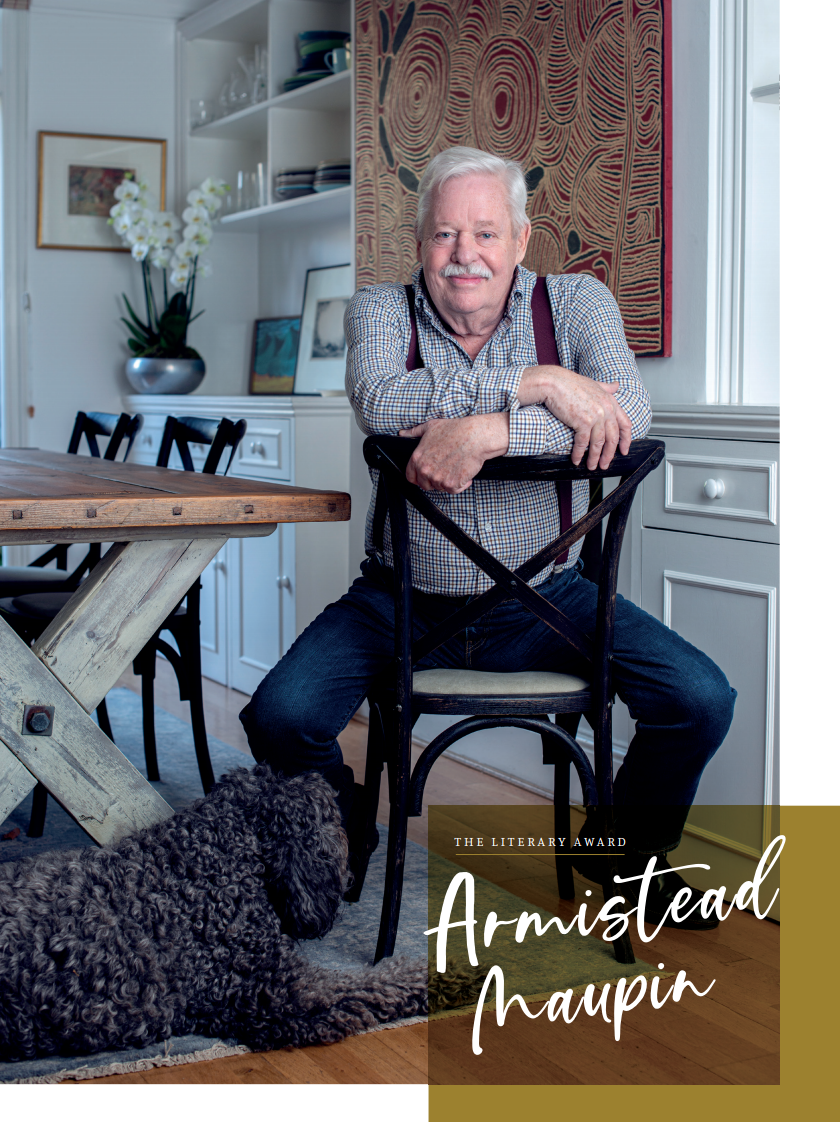
Photography: Markus Bidaux
I have to ask: did the rise of right-wing populism in the States contribute to his decision to move?
“It didn’t hurt, I’ll tell ‘ya that!” Armistead bellows in his roguish Southern drawl. “Our country is so deeply fucked up. Donald Trump didn’t create this monstrosity, we created it — by building a culture that didn’t respect true American values, that had no inherent decency.”
For Armistead, the politics of division that’s infected America – and which Tales previously did so much to heal through its warm, celebratory exploration of LGBTQ lives – is one he has “intimate knowledge” of.
Growing up in a ‘southern aristocratic’ family in North Carolina, his early life was shaped by his father’s racist and conservative views. Working for an ultra-conservative senator and shaking the hand of President Richard Nixon in the Oval Office — as a pro-war Vietnam navy veteran — form part of Armistead’s unlikely story. It wasn’t until that fateful move to the free-lovin’ streets of San Francisco as he hit 30 that he embraced his sexuality and shed the repressive shackles of life as a right-wing WASP from the South.
“My father was a white supremacist,” Armistead says flatly. “He didn’t put that name on it but that’s what he was. And I have family members who still are.”
I suggest that many in his position don’t ever reach the level of self-acceptance required to be true to who they are: that it was something of a miracle for the time he was living in, given his background.
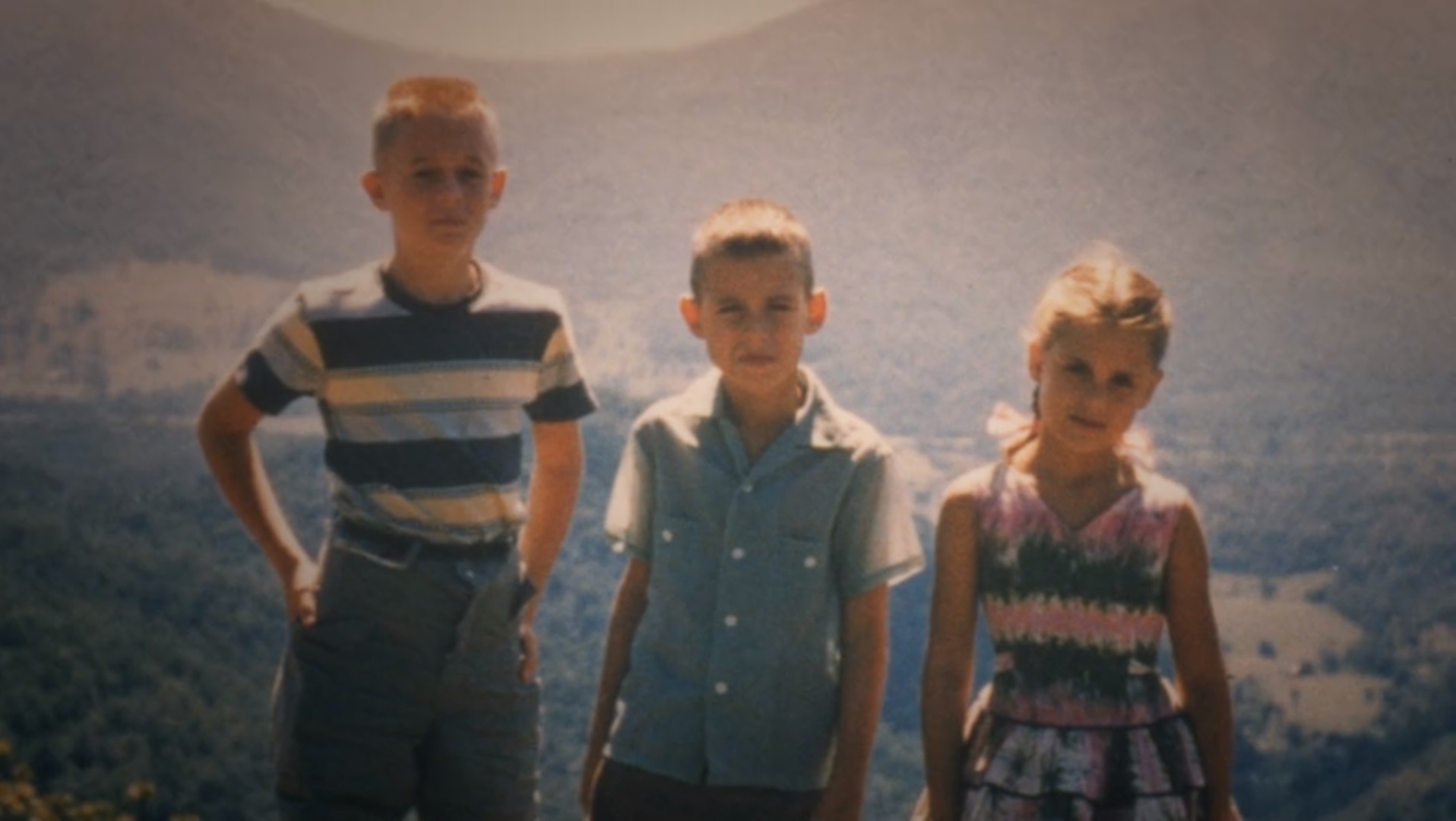
Armistead (left) pictured with his siblings, as seen in 2017 documentary ‘The Untold Tales of Armistead Maupin’
“You have to get over your own homophobia or you can’t move anywhere,” he says. “That’s my argument for coming out of the closet as quickly and cleanly as possible. Some people have to do it in their own time and that’s fine. But I’m here to tell them that things will blossom if you really try to be yourself.”
He takes a long pause.
“Sorry, I’m deciding whether to pick on Kevin Spacey,” he says eventually. Another loaded pause. “I won’t. But there are plenty who don’t ever figure it out.”
While Armistead admits to feeling “less and less political” these days, he believes “the time has been right” for Tales to make a rainbow-filled return to the small screen.
With Laura Linney and Olympia Dukakis reprising their iconic roles as Mary Ann Singleton and Anna Madrigal respectively from the original TV adaptations, an all-queer writing team led by Orange Is the New Black’s Lauren Morelli transported a diverse cast of characters back to 28 Barbary Lane. Unabashedly warm-hearted and earnest, the series once again provided LGBTQ viewers with an uplifting, escapist outlet in which to see their place in the world reflected back at them.
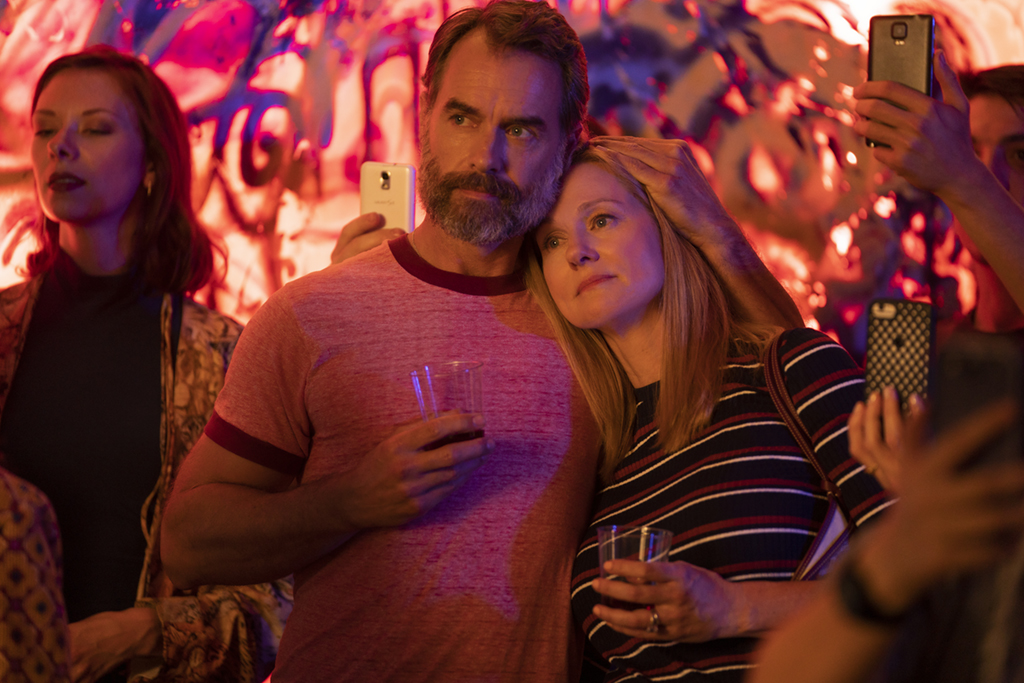
Murray Bartlett and Laura Linney in the Netflix revival of ‘Tales of the City’
“The mini-series has done terrifically well in countries where it needs to make a difference,” says Armistead, who served as a co-executive producer on the revival. “Where queers are being oppressed by their cultures, they’re watching the show, and that thrills me, that Tales of the City still has teeth after all these years.”
But was it difficult to see other writers let loose with characters he’s spent more than half his life shaping?
“Let me say it without naming anybody: we didn’t arrive there easily,” he replies mischievously. “We had several set-ups that were not satisfactory, where the writers didn’t ‘get me’.
“But once Lauren came on board, she approached me and said: ‘I want you to know we’re going to preserve the DNA of your characters’. I trusted her to do that, and she did. [We] maintained the purity of the product, even if we changed it, because we needed to change it. We needed a greater diversity of characters.”
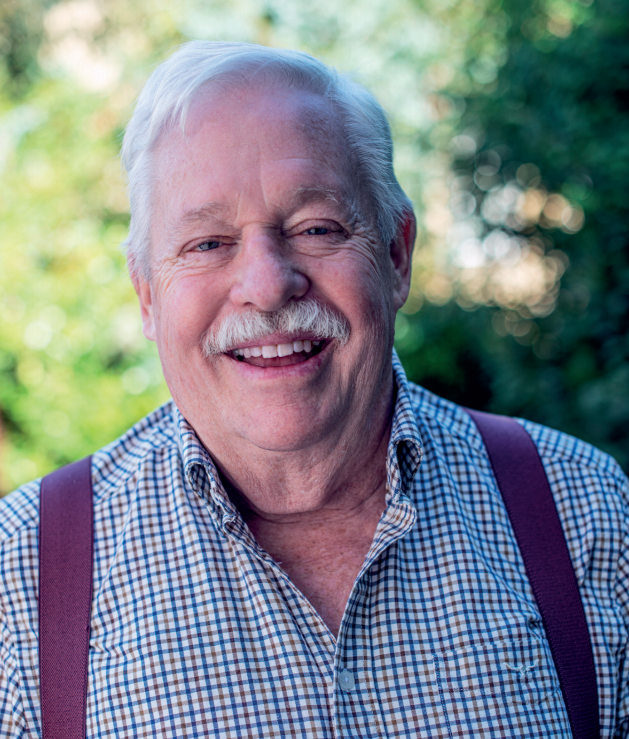
Photography: Markus Bidaux
That diversity stands as one of the indisputable triumphs of the new series, and Armistead believes passionately in the power of casting LGBTQ talent to tell LGBTQ stories. Shutting down the oft-used excuse that there aren’t enough jobbing queer actors to fill queer roles, he contrasts the current casting landscape with that of the early ’90s, when the original Channel 4 and PBS television first aired.
“When I first started with Tales, the assumption was ‘Well, no actor would ever say that about themselves’. [On the new series] we put out a casting call for Hispanic trans men and I remember thinking, ‘Good luck with that’,” Armistead recalls.
“A hundred people came to read for the role.”
He goes on: “It’s always been important to me, having openly LGBTQ actors in those roles. I just hadn’t been granted the pleasure until recently. Great actors are great actors. Sure, some straight guy can play a gay role but until we even the playing field a little bit, I’m happy to be a vehicle through which gay actors can show their stuff.”
The world in which Tales was originally adapted for TV, 25 years ago, was a very different one from today.

The cast of the original 1993 Channel 4/PBS adaptation of ‘Tales of the City’
In 1994, conservative outrage over its scenes of drug use, nudity and LGBTQ intimacy made it all the way to the US Congress before the publicly-funded PBS was pressured to drop the show after just one outing (it would later return with help from Showtime for 1998’s More Tales of the City and Further Tales of the City, in 2001). There has been none of that this time around, refreshingly, but you get the sense there’s a part of Armistead that would love nothing more than to keep ruffling the feathers of small-minded people.
“It’s a very satisfying feeling,” he says of the homophobic letters, complaints and bigoted senatorial speeches Tales has elicited over the years. “You feel like you’re an artist.
“When your enemies are that vile, you know you’re doing something right.”
Perhaps Tales’ greatest contribution to the queer cultural canon is the unique way the series evolved in real time alongside the communities it represented during its daily newspaper serialisation. Often described as a “Trojan Horse” for LGBTQ issues, it thrust realities which were ignored by wider society in front of a mainstream readership.
As the Aids crisis ravaged San Francisco’s gay community during the 1980s, so Tales took on an increasingly darker tone, as Armistead found himself injecting his pain and confusion at losing so many friends into his work.
“It was all I knew how to do,” he says. “I’m not a placard guy. I applaud everyone who is, but I feel I do my work at the typewriter.
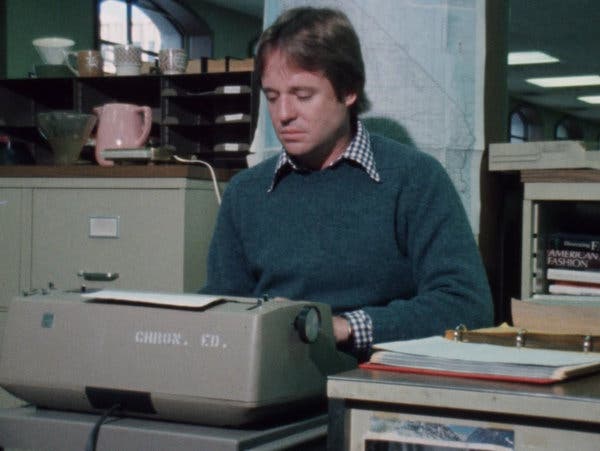
Armistead at the The San Francisco Chronicle, as seen in ‘The Untold Tales of Armistead Maupin’
“I realised that by being honest about Aids and what I was feeling, the story would have a new vibrancy and a political edge that it didn’t have before.”
He tells me of one exchange during the height of the crisis that has stuck with him ever since.
“I had a woman tell me that her brother had been buried with a copy of Tales of the City in his coffin,” he reveals.
Armistead’s increasingly outspoken political nature didn’t come without controversy, however, even from within the gay community itself. Going public about his liaisons with closeted Hollywood star Rock Hudson (then dying from an Aids-related condition) lost him friends, but, unsurprisingly for a man whose life mantra has been to break down walls through storytelling, he has no regrets.
In fact, he’s “not even slightly sorry.”
“Here was a man who was dying, who had this terrible thing happening to him, and we were still making the fact he was queer more horrifying than that,” Armistead exclaims.
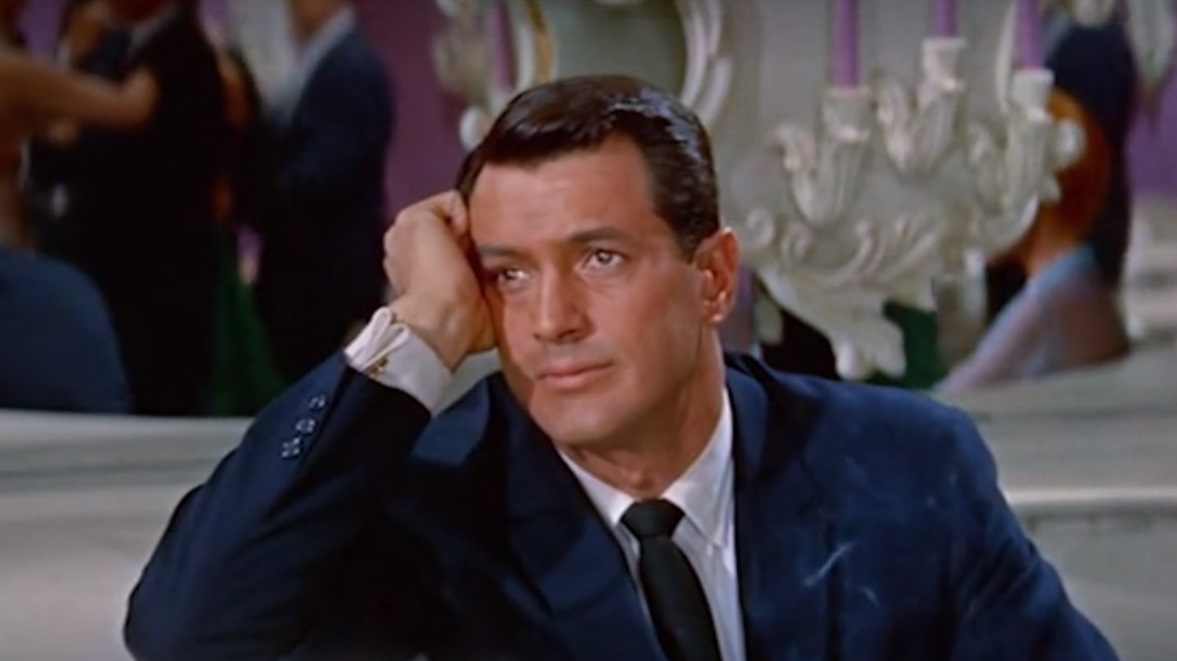
Maupin’s decision to speak publicly about his relationship with Hollywood actor Rock Hudson (pictured) in the 1980s lost him friends at the time
“I’d had too many friends die while being honest about their own lives. “Ronald f**king Reagan wouldn’t even mention the word [Aids], and he was a friend of Rock’s.”
I mention that my own LGBTQ book club recently re-read the first Tales novel, published in 1978, and that many first-time millennial readers had been struck by how intra-community tensions among gay men regarding femininity, “straight-acting” and body image remain eerily unchanged from 40 years ago. Is that apparent lack of cultural progress an indictment of us all?
“People who are not sure in their own bodies, of who they are, and what they should be — namely themselves — will find something wrong with some other queer who doesn’t live up to their ‘standard’ of what being a ‘good queer’ is all about,” Armistead sighs.
“And that’s just ridiculous. The word is ‘queer’! We’re not supposed to be like anybody but ourselves. [The British-born author] Christopher Isherwood taught me to use that word real early on. He said: ‘It embarrasses our enemies’, and it’s quite true.”
One thing that has certainly changed since Tales was first published is the ubiquity of dating and hook-up apps. Although Armistead himself first spotted his husband Christopher in profile-picture form on the web 15 years ago (before having an unlikely meet-cute on the street), does he think technology has diminished the sense of community he witnessed in places such as San Fran during the 1970s?
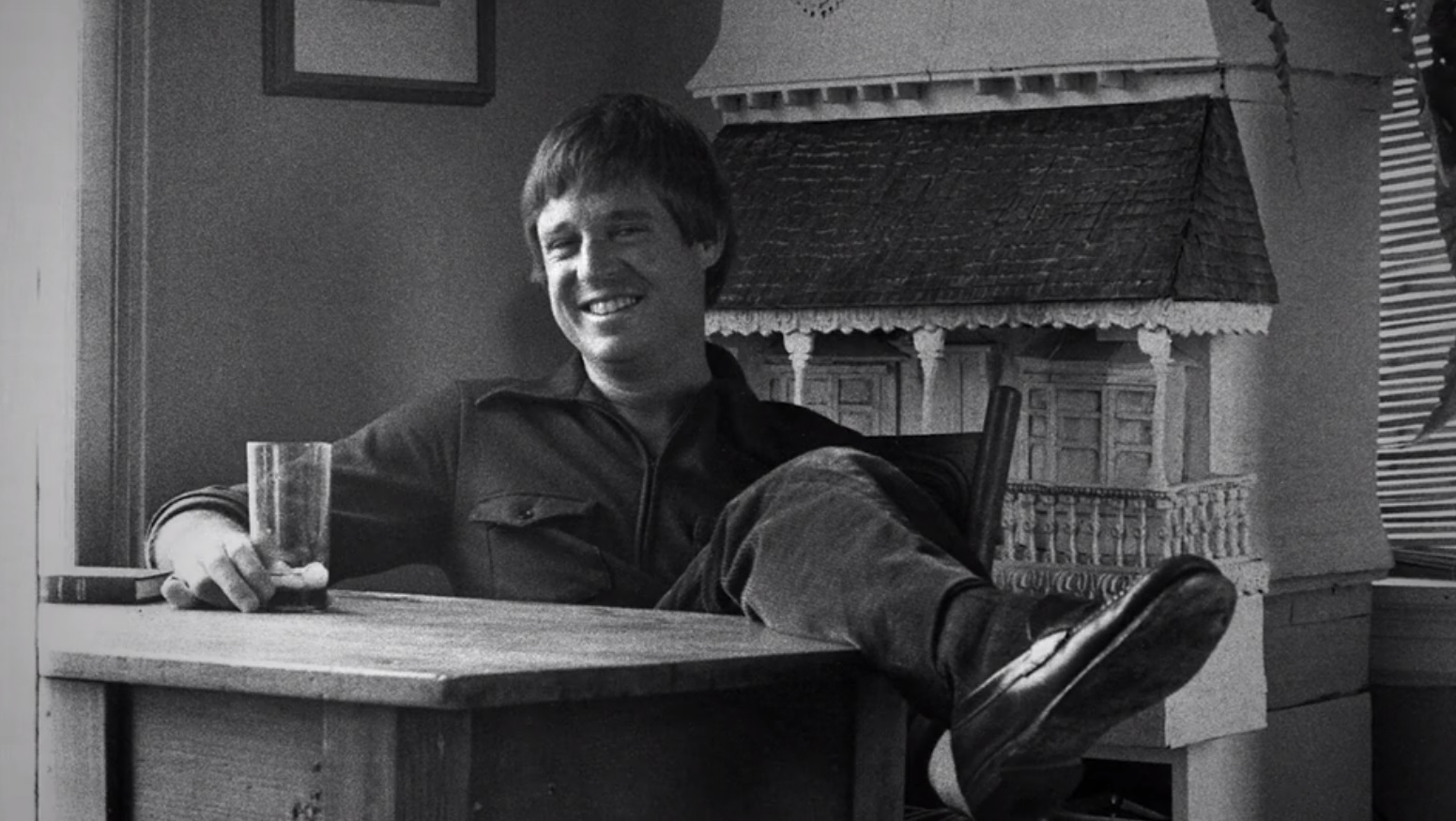
Armistead pictured in the 1970s, as seen in ‘The Untold Tales of Armistead Maupin’
“I’m the wrong person to ask. I know a lot of people who are having their heart broken by Grindr: the chance for rejection is much larger than it used to be. In the old days you just walked to another corner of the bathhouse! I don’t have any nostalgia for dangerous woodland experiences…”
“When we didn’t actually see each other’s dicks beforehand!” he roars. “It was awfully fun, unwrapping the package in the old days. It’s taken the surprise all out of it.
In photographer Chris, however, Armistead found his happy ending. Reflecting on the personal fulfilment that, for him, came later in life, the self-described “romantic with a slut side” muses: “My mother, when I came out to her, told me: ‘Sure, you’re happy now because you’re young and vital and randy, but what’s it going to be like when you’re old?’
“I think about that often. “[But] here I am today, I’m certifiably old and gloriously in love with another man, and we both tell each other that every day. This is what it’s like [to be old and gay]. To have proven that old trope wrong is especially satisfying. And marriage doesn’t necessarily reflect ‘settling down’ or monogamy or anything else.
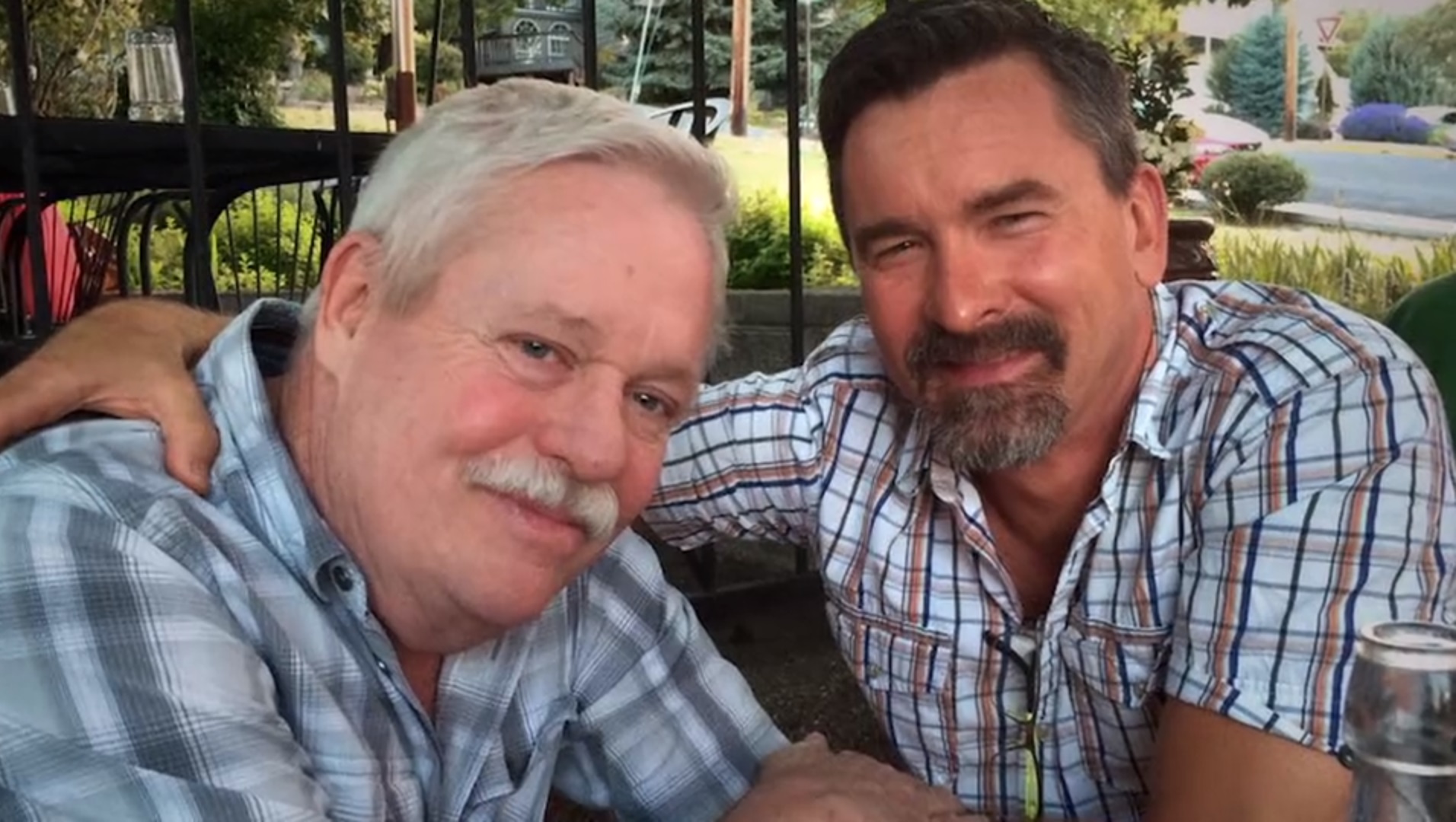
Armistead (left), pictured with husband Christopher Turner, who he wed in 2007
“I won’t embarrass anybody by talking about how great our sex life is – but I’ve got good news for ya if you hang in there!”
Of course, the question on every fan’s lips is whether Tales might return for another outing. “We’re waiting to see if that’s what happens,” Armistead says coyly.
“Netflix keeps their cards pretty close to their chest. I would certainly be open to it happening again.”
Whatever happens, there are certainly no plans to slow down during the new chapter that is ‘Armistead Maupin: The London Years’.
The eternal story-teller is already in the early stages of a new “deep-dive” entry in the Tales series, which will explore what happened to Anna Madrigal’s daughter, Mona Ramsey, after she left the States to start a new life in a Cotswolds manor house.
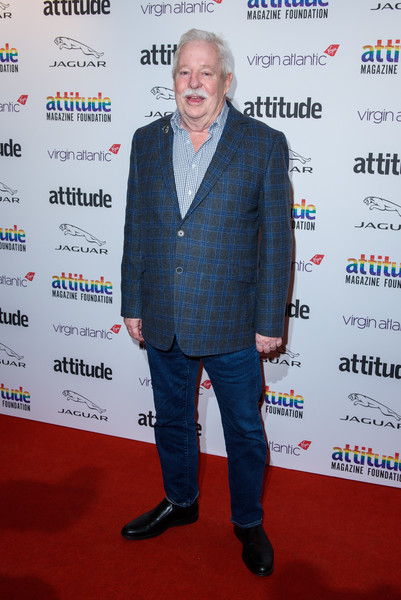
Armistead Maupin at the Virgin Atlantic Attitude Awards 2019, powered by Jaguar
Set in Britain in 1988, “at roughly the time Maggie Thatcher was on her rampage against queers”, it will give Armistead another chance to revisit those dark but galvanising years which saw Aids leave its indelible mark on the community — and on him.
“I get to go back,” he sighs, recalling the years in which he lost and learnt the most. “I get to go back one more time. Because I don’t want people to forget.”
“Mona’s going to raise a stink over Clause 28 though,” he adds with a grin, the trademark twinkle never more than a flicker below the surface. “It’s gonna be fun…”
‘Tales of the City’ is available to stream now on Netflix.
